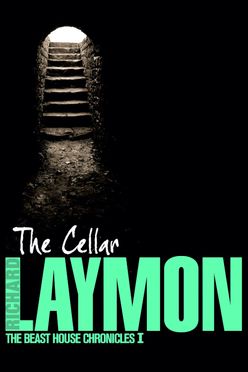The Cellar

Richard Laymon’s debut novel. Single-mom Donna flees town with her daughter Sandy after her ex-husband Roy makes parole. A car accident strands Donna and Sandy in Malcasa Point, a small northern California town whose claim to fame is an aging mansion known as Beast House.
The site of several murders by an alleged beast that lurks the house’s halls, the current owners have transformed the house into a tourist attraction complete with grisly wax replicas of the murder victims.
While waiting on repairs to their car, Donna and Sandy cross paths with Judge, a mercenary out to kill the beast. Meanwhile, Roy learns of Donna’s whereabouts and heads to Malcasa Point. The inevitable conclusion blurs the line between man and monster.
Aside from the expected violence, Laymon’s debut novel features graphic child sexual abuse. Sections prove difficult to stomach, but I never got the sense Laymon was rubbing my nose in it. Rather, the novel feels raw and uncensored, as though Laymon was laying bear his own worst nightmares. Laymon has been called “Stephen King without a conscience.” There’s truth in it. In On Writing, King writes:
I don’t believe a story or a novel should be allowed outside the door of your study or writing room unless you feel confident that it’s reasonably reader-friendly.
This implies self-censorship on King’s part. For example, he excised a gruesome but terrific scene from Salem’s Lot, and put Pet Sematary in a drawer after finishing it, convinced it was too dark for publication. With Laymon, there’s no such filter.
And while Laymon trades in the same small-town dynamics as King, I found his writing closer to the pulp sensibilities of Robert E. Howard. Where King’s characters are nuanced and relatable, Laymon’s are identifiable archetypes. Roy is pure, calculating evil driven by his basest, grotesque desires. Judge is an epitome of masculinity. Muscled, capable, and virile. Donna is the Madonna-whore, a good mother, loyal to her daughter, but quick to give herself to the hero, Judge. Wasting little prose on exposition, Laymon propels the narrative along with action and dialogue, making for a brisk read.
And yet, there’s the ending. Even on my second read through, Laymon’s adolescent characterization and pulp plotting lulled me into a false sense of security, which he shatters with a nihilistic coda. King without a conscience, indeed.
Reading History
- 07 Mar, 202223%
- 10 Mar, 202234%
- 13 Mar, 202240%
- 14 Mar, 202264%
- 15 Mar, 202276%
- 16 Mar, 2022Finished